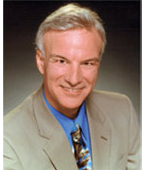
Host: Anti-Aging Psychologist Dr. Michael Brickey
Guest: Dr. Larry McCleary
Broadcast and podcast on webtalkradio.net. The podcast is also below.

Nutritional advice is a tower of Babble. There are many theories that have little research to support them. The US government’s Food Pyramid and recommendations reflect more of a political process than a scientific process. The marketplace is full of hype for products and services. The answers on what really fosters wellness and longevity will ultimately come from scientific research. The strength of Dr. McCleary’s advice is that it is based in research and clinical experience.
To the extent that there is any consensus among anti-aging researchers and holistic medicine practitioners, it would be a Mediterranean diet, with fresh fruits and vegetables, whole grains, olive oil, fish and lean meats (or vegetarian protein substitutes). Dr. McCleary generally agrees with the Mediterranean diet but would minimize grains and starches, go easy on fruit juices and fruits that have high glycemic indexes, and prefer coconut oil to olive oil. Dr. McCleary developed his recommendations from a perspective of what optimizes brain functioning, what helps energy levels, and what helps with weight loss.
The closest researcher that I am aware of is Barry Sears, Ph.D., a chemist who has spent more than thirty years researching hormones, diabetes, and weight loss. Sears and McCleary agree on the importance of fish oil and that insulin is the key to weight loss. Sears advocates 30% fats, 30% protein, and 40% healthy carbohydrates. Thus, he advocates far less fat than McCleary. He believes his Zone diet can keep insulin levels stable and hormone levels in a healthy balance.
Sears believes a ketogenic diet does reduce blood insulin resistance but increases insulin resistance in the liver and increases cortisol production. Cortisol causes inflammation which Sears sees as the common denominator of most chronic diseases including diabetes and cardiovascular disease. You will recall that McCleary’s interest in ketogenic diets came from using a ketogenic diet with children who had seizures.
Sears characterizes the Atkins diet as rich in (long chain) saturated fats and Omega 6 fatty acids. McCleary tends to favor healthier fats than the typical Atkins diet. Sears sees two destructive mechanisms of an Atkins diet. First, that its (long chain) saturated fats and Omega 6 fatty acids foster inflammation. Second, that when the brain doesn’t get its glucose, the cortisol it produces breaks down muscle tissue to help produce glucose.
Sears says that people lose weight on an Atkins diet for about six months and then gain the weight back and more because of damage from cortisol production, inflammation, and hormonal changes. You can hear my podcast with Dr. Sears in the Ageless Lifestyles archives.
McCleary suggests that while the brain’s main food is glucose, it also thrives on ketones. The question is whether the glucose and ketones in McCleary’s diet would produce enough brain fuel to not prompt cortisol production and the damage cortisol can produce.
Keep in mind that high fat diets and their increased ketone production can be hard on kidneys and need more water to excrete excess ketones. Also, be alert for any signs of hypoglycemia (low blood sugar).
Among anti-aging researchers there seems to be some shift away from high carbohydrate diets. While the jury is still out, carefully observe how your body responds to what you eat, get periodic blood tests, and be careful.
Dr. McCleary’s website is www.DrMcCleary.com. Brickey’s other websites are www.DrBrickey.com and www.Anti-Aging-Speaker.com.
